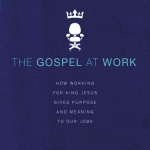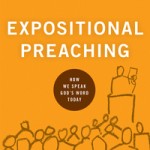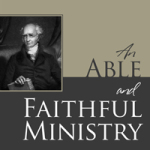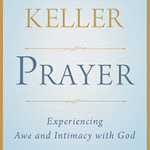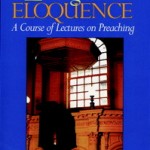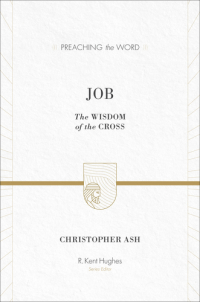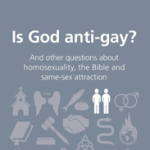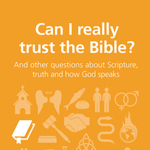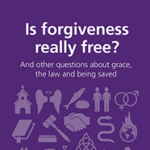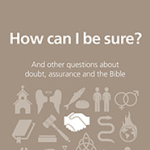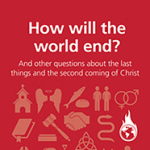
In his excellent introduction to the doctrine of Scripture Kevin DeYoung suggests the group most likely to struggle with or reject the sufficiency of Scripture is the church. I think he’s right on.Whether it’s traditionalism, individualism, pragmatism, or experientalism, there are innumerable threats to our belief that God’s word is enough.
Is God’s word sufficient for your life and ministry in Christ?
Just yesterday I was with a group of godly pastors in my county thinking about the sufficient of Scripture. Much of the conversation revolve around practical implications for our ministries if we confess God’s word to be true. Two immediately came to my mind:
- Because God’s word is enough we cling to it.
- Because God’s word is enough we are content with it.
WE CLING TO GOD’S WORD
Every passing decade impresses a dominant passing fad of pastoral power on gospel ministers. The seeker-sensitive movement gave us Christianized worldliness to attract the world, forgetting the world has never loved the King over this world (1 John 3:13). If we offered enough programs, events, and excellence in buildings and on-stage performance, then we would have real power in witness. The post-modern Emergents swung back the pendulum of power in their promotion of story, community, and dialogical preaching. The real power would come when pastors were “authentic.” Remove any remaining remnants of institutionalism, lower the lights, and bring in some couches. Sit down rather than stand when you ascend to the sacred desk and, armed with a Bible and requisite cup of java, converse with your people about struggles and doubt, not sound doctrine.
The latest fad of all things “gospel-centered” has a peculiar power to it. After all, the gospel is “the power of God unto salvation.” But one wonders if we’ve emptied “gospel” of its biblical meaning in our proliferation of its adjectival use that the word itself now often functions as a “shibboleth” in modern evangelicalism. As long as you say “gospel” or “gospel-centered” enough, whether or not you should do so from the given text, you have a ticket for power.
Each of these movements undoubtedly has aspects of wisdom and is worthy of emulation . . . to a point. It seems to me that our tendency to love movements more than local churches creates pastors who are linked to 7,500-watt portable generator. The seeker-sensitive and Emergent movements have all but petered out. Will it happen to the “gospel-centered” generation? Probably. Movements, like portable generators, only last for a time and can only power so much. All the while a hydroelectric power station lies at our very fingertips: the word of God.
From whence does pastoral power come? The Lord Jesus Christ. As the great apostle said the to Colossians in 1:28-29, “Him we proclaim, warning everyone and teaching everyone with all wisdom, that we may present everyone mature in Christ. For this I toil, struggling with all his energy that he powerfully works within me” (emphasis added). And how does he powerfully work His energy into His men? Through His word and Spirit.
And so united to Christ by faith, men in whom the Holy Spirit dwells, we cling to God’s word in our praying, preaching, and pastoring. There is no power without it. We keep the Spirit’s sword always by our side, but we don’t merely leave it in the scabbard. We regularly and relentlessly wield the word of God as we do the work of God in making disciples of all nations.
WE ARE CONTENT WITH GOD’S WORD
Because Christ is all, the word of Christ must mean everything to the church of Christ. It is our very life. And so we are content with it’s sufficient power.
All through the Bible we see that when God gives life, He does so through the power of his word. In Genesis 1 we find God creating, giving life to all things, by speaking them into existence with his powerful word. Later on in Exodus 20 we find God, through His word, speaking the nation of Israel into existence. Then there is the stunning vision in Ezekiel 37 of God giving new life to his people after their exile in Babylon. The prophet sees bones lying in the dust and God tells him to speak. Ezekiel then says:
So I prophesied as I was commanded. And as I prophesied, there was a sound, and behold, a rattling, and the bones came together, bone to its bone . . . and the breath came into them, and they lived and stood on their feet, an exceedingly great army. (Ezekiel 37:7, 10)
God’s word, spoken through Ezekiel, brings dead bones to life. The Old Testament is clear: God’s people receive life through God’s word.
We see the same thing in the New Testament. Indeed Scripture’s teaching about God’s life-giving Word finds its consummation in Jesus Christ, the incarnate Word. John writes at the beginning of his gospel,
In the beginning was the Word, and the Word was with God, and the Word was God. All things were made through him, and without him was not any thing made that was made. In him was life. (John 1:1, 3-4)
In the Word was life! It is through Jesus Christ – the incarnate Word of God – that we are brought from death to life and “born again” by God’s power. Paul makes the same point in Romans 10: “Faith comes by hearing, and hearing by the word of Christ,” he says (Romans 10:17). And Hebrews 1 says, “he upholds the universe by the word of his power.” The Bible continually announces that God’s Word brings life to everything; that is a theme on which our soul is lifted from the dust of this world in which we live.
Notice how prevalent this idea is in Psalm 119:
- 119:37 – “Give me life in your ways.”
- 19:50 – “Your promise gives me life.”
- 119:93 – “Your precepts . . . have given me life.”
- 119:107 – “Give me life, O Lord, according to your word!”
- 119:54 – “Give me life according to your promise!”
- 119:56 – “Give me life according to your rules.”
It is our life. Thus, it is enough.
And so may we love it with contented delight, desire, and dependence. Cling to and be content with God’s sufficient word, for it will do all. Luther’s famous and eloquent depiction of the sufficient power of God’s word is an appropriate way to finish the meditation. He wrote,
Take me, for example. I opposed indulgences and all papists, but never by force. I simply taught, preached, wrote God’s Word: otherwise I did nothing. And then, while I slept or drank Wittenberg beer with my Philip of Amsdorf the Word so greatly weakened the papacy that never a prince or emperor did such damage to it. I did nothing: the Word did it all. Had I wanted to start trouble…. I could have started such a little game at Worms that even the emperor wouldn’t have been safe. But what would it have been? A mug’s game. I did nothing: I left it to the Word.
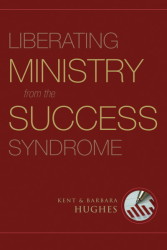 There are many books a pastor should consider reading, but only a few – outside of Scripture – I’d say he must read. One such book is Kent and Barbara Hughes’ Liberating Ministry from the Success Sindrome.
There are many books a pastor should consider reading, but only a few – outside of Scripture – I’d say he must read. One such book is Kent and Barbara Hughes’ Liberating Ministry from the Success Sindrome.

